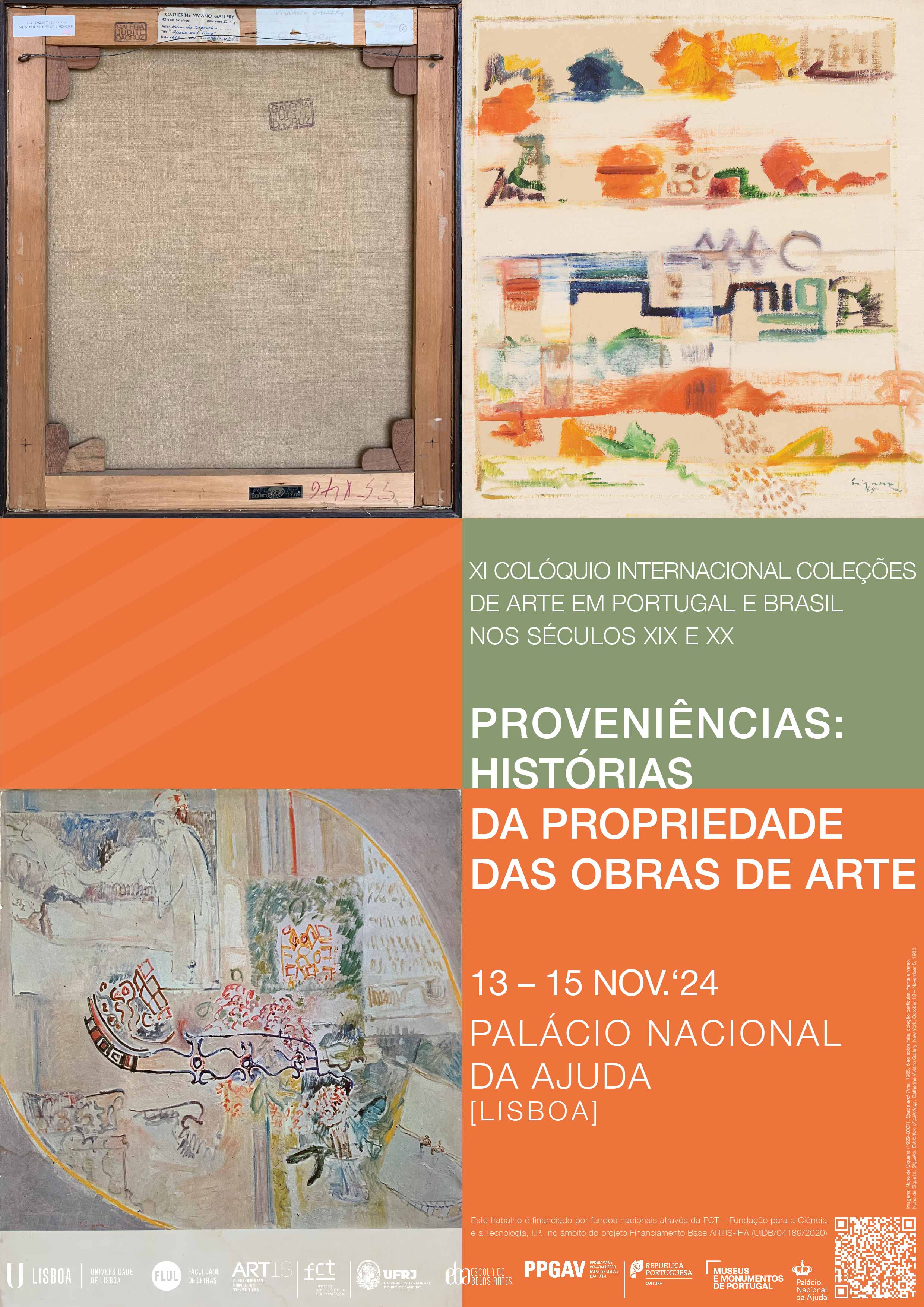

13-15 November, 2024 | Lisbon, Ajuda National Palace
The 11th International Colloquium "Art Collections in Portugal and Brazil in the 19th and 20th Centuries" is dedicated to the theme of provenance, i.e. the history of the ownership of works of art. Like the previous events, this colloquium is promoted by ARTIS, the Art History Institute of the School of Arts and Humanities of the University of Lisbon, and by the Postgraduate Programme in Visual Arts of the School of Fine Arts of the Federal University of Rio de Janeiro, and supported by the Ajuda National Palace.
Read More
27-30 May, 2024 | Lisbon, School of Arts and Humanities of the University of Lisbon
The International Charter for the Conservation and Restoration of Monuments and Sites, usually known as the VENICE CHARTER, was adopted by the ICOMOS - International Council of Monuments and Sites, following the 2nd International Congress of Architects and Technicians of Historic Monuments held in Venice from 25 to 31 May 1964.
Read More
![ARTIS NOW [WORKSHOP] | DIGITAL DOCUMENTATION OF ARCHITECTURAL HERITAGE](multimedia/imagens/eventos/2024_05_01_Ev_ARTisNow04.jpg)
18 May 2024 | Lisbon, Capela do Santo Cristo | 10.00
ARTis NOW will host a workshop dedicated to digital documentation of architectural heritage, featuring Mario Santana Quintero [Carleton University - Honorary President of the ICOMOS Scientific Committee on Heritage Documentation (CIPA)], one of the world's leading experts in the field.
Read More

8-10 May, 2024 | Brazil, Belém-Pará, Federal University of Pará
In this third edition, the aim is to highlight the potential of welfare architecture, on different continents, to provide global health care for human beings, considering the form, implementation of treatment environments and the adoption of humanised methods to obtain answers to questions about sustainability and humanisation in hospitals and other health facilities.
Read More

15-17 April, 2024 | Lisbon, School of Arts and Humanities of the University of Lisbon
The everyday life in a hospital has always been related to different objects and practices that make up the material expression of established human relationships and the very functioning of such places. In its spatial or topographical, chronological and historical and anthropological dimensions, material culture is related to the purpose or meaning that objects have for a particular people or culture and is essential in defining a society's cultural identity.
Read More







